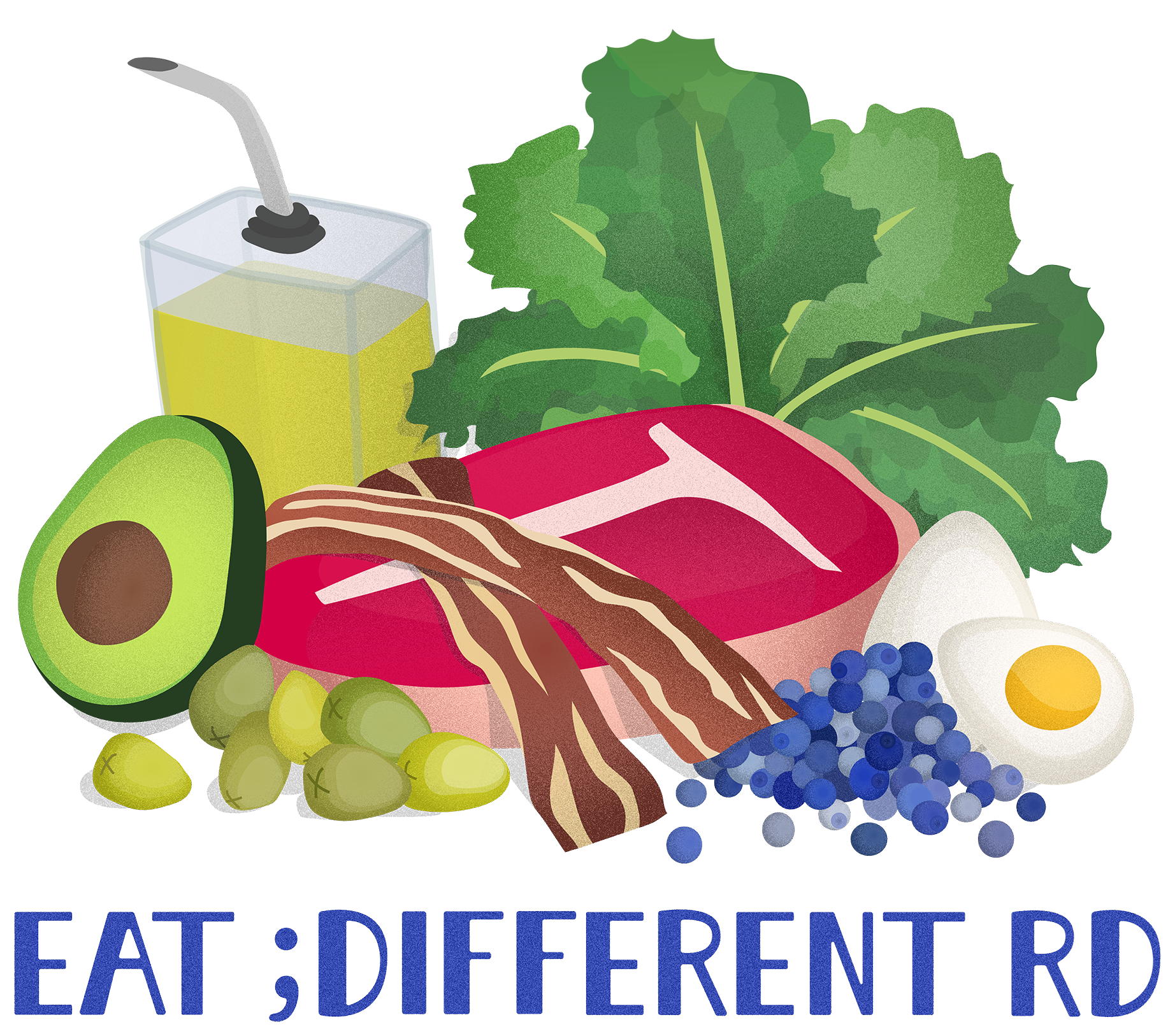Canada’s Food Guide – My Take, Part 2
Today, I want to continue our discussion on improving the Canada's food guide. The second thing I would want to do is:
Remove all sources of added sugars/sweeteners!
This includes fruit juice (even the 100% pure juice). Interestingly enough, this recommendation would remove most cereals (see my post from last week). Added sugars are addictive AND play with our hormones. A very large cohort study (in 2014) with the National Health and Nutritional Examination Surveys [NHANES] found that ~71% of American’s eat between 10%-25% of their daily calories from added sugar. 10% of Americans ate more than 25% of their daily calories from added sugar. The average added-sugar intake was 17.5%.
Hmm... lots of numbers that don't mean much to most people. Let’s put that into perspective…. Assuming a 2000 kcal diet (which is likely low for many individuals): At the low end (10%), this means more than 200kcal from sugar, divided by 4 kcal per gram of sugar = 50 grams of sugar, divided by 4 grams sugar per tsp = 12.5 tsp sugar per day MINIMUM. On the higher end (25%), this means 500 kcal from sugar, divided by 4 kcal per gram of sugar = 125 grams of sugar, divided by 4 grams sugar per tsp = 31.25 tsp sugar per day. So somewhere between 12-31 tsp ADDED SUGAR per day! Now, this is likely a conservative amount because the study used one-day reported intake. people tend to underestimate how much they eat when reporting, and participants probably reported their ‘good days’ (because…well, wouldn’t you?).
Now, let’s look at the average intake: 17.5% of total calories came from added sugar. Again, based on a 2000 kcal diet = 350 kcal from sugar, divided by 4 kcal per gram of sugar = 87.5 grams of added sugar per day, divided by 4 grams of sugar per tsp = 21.9 tsp of added sugar per day. So on average, Americans (because that is who the participants were) are eating almost 22 tsp of added sugar per day.
This study found that individuals eating between 10-25% of total energy (remember, between 12-31 tsp/day) from sugar were at higher risk of having a heart attack or stroke by 30% (adjusted hazard ratio 1.30; I believe the p value=0.004); and individuals who ate 25% or more of their total energy (more than 31 tsp/day) from sugar were 2.75 times (adjusted hazard ratio 2.75; p=0.004) more likely to have a heart attack or stoke. Hmm.. that is significant.
Where is sugar added in our diets? Here is a list – adapted from the American Heart Association:
✔ sugar-sweetened beverages like regular soft drinks, ice teas, sweetened hot and cold café drinks, sports drinks, alcoholic beverages;
✔ sugars and candy
✔ grain-based desserts such as cakes, cookies, and pies,
✔ fruit drinks (fruitades and fruit punch), and fruit juices,
✔ frozen desserts (diary and non-dairy) and milk products including ice cream, flavoured yogurt, and flavoured milk,
✔ other grain based foods such as cereals, cinnamon toast, and honey-nut waffles.
✔ anything with these in the ingredient list (not a complete list): sugar, glucose, glucose/fructose, high fructose corn syrup, honey, maple syrup, agave, etc.
For a full list of the 61 terms for sugar on ingredient lists, refer: http://www.sugarscience.org/hidden-in-plain-sight/#.VtiTtcdllp8 (bottom right column).
In terms of recommendations, the American Heart Association recommends NO MORE than 6 tsp sugar for women, 9 tsp for men, and 3-6 tsp for children, PER DAY. I would argue that reaching this upper limit would be considered eating in MODERATION.
May I also add, that for children.... the younger the child, the closer to 0 the amount of sugar should be. the 6 tsp per day limit is likely more for teenagers than for 6 year olds.
Exercise: TRY THIS AT HOME! Check how much sugar is in your cereal? Or yogurt? Or the next thing you eat out of a package.
Have a great day!
NOTE TO THE READER: my posts are not to shame anyone in any way. My goal is to educate people and empower them to be able to make wise choices about their food. And they can only do so when they know what they are putting into their mouths.
If you have any questions or comments, please email me at eliana@eatdifferentrd.com.
Wishing you the best of health,
Eliana
